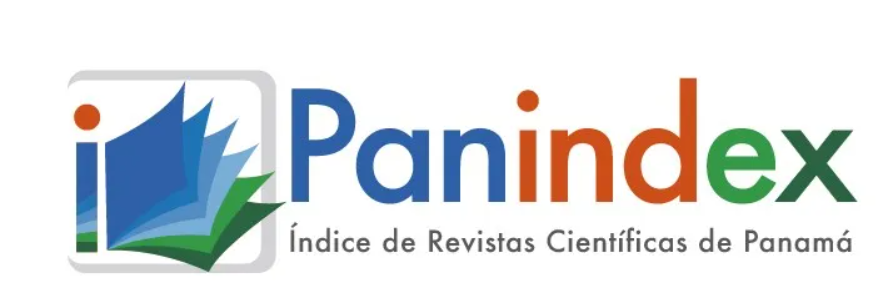The content of the publications and the links suggested in them are the sole responsibility of the authors and not of the METROPOLITAN UNIVERSITY OF EDUCATION, SCIENCE AND TECHNOLOGY (UMECIT) or CATHEDRA magazine. They are protected by international copyright laws just as the UMECIT and CATHEDRA logos, hence their reproduction is totally prohibited
This work is licensed under a Creative Commons Attribution-NonCommercial-NoDerivatives 4.0 International License.
The authors maintain the copyright and transfer the right of the first publication to the journal, with the article registered with Creative Commons Attribution-NonCommercial-NoDerivatives License, which allow others They can download the works published in this magazine and share them with other people, as long as their authorship is recognized, but they cannot be changed in any way nor can they be used commercially.
Authors are recommended to include their work in social networks such as Researchgate and institutional repositories once the article or visible fact has been published on the journal page, without forgetting to include the digital document identifier and the name of the journal.



Abstract
The development of current societies requires a constant process of renewal and updating, dealing with the distribution system of different matters, according to people's essential needs and requirements. This distribution system is people's decision through their legislative corporations and through the democratic participation headed by each citizen. This act implies co-responsibility. lt sets out a different manner of looking at the law, looking for a development model contemplated and considered according to the needs and aspirations of the citizen, the community, the human beings, what is normally known and entitled as people. Equality consists in placing the other, on the same plane, without distinction, seeing it in the same ethical dimension, once this step is fulfilled a new relationship arises. Fraternity is an act, it is not enough to pay tribute to the good, to the meaning of the word, it is demanded for it to be fulfilled, to be performed. ln order to be able to act this way, the person must feel free, not interested, abandon the self, resulting in an experience of liberation, inner peace, unity, life, gratuity and reciprocal recognition. Deep human relations lead to the knowledge of other's circumstances and thus points out the duties of justice. Law is Justice. But they also entail fair action. Law is an experience, it is not only a rule of conduct, it is the way of living regarding the personal and social aspects.
The relationality as a form, provides consciousness of the social being, which implies power to discern the fair community as a right, the concrete matters of each social group, their needs and how to obtain their fulfillment.
Keywords
References
GIORDANI lgino.('1962) El mensajesocial deJesús.PATMOSl0T.EdicionesRialp, S.A-Madrid.
HERVADA, Javier (2000). lntroducción crítica al Derecho Natural. EditorialTemis S.A.
lnstituto de Humanidades Universidad de La Sabana. Santa Fe de Bogotá- Colombia.
MORA R., Gabriel (2005) . Ciencia Jurídica y Arte del Derecho. Estudios sobre el
oficio del jurista. Universidad de La Sabana-Ediciones Jurídicas GUSTAVO IBAÑEZ . Colombia.
RESTREPO D., Manuel Humberto. Los derechos Humanos con perspectiva crítica. Publicado en Los Derechos Sociales en serio: Hacia un dialogo entre derechos y políticas públicas. Centro de Estudios de Derecho, Justicia y Sociedad. lnstituto para la lnvestigación Educativa y el Desarrollo Pedagógico.
LUBICH, Chiara. (2002) La doctrina espiritual. Ciudad Nueva. Madrid- Bogotá- Buenos Aires- México- Montevideo- Santiago.
CAMBÓN, Enrique (2000). La trinidad modelo social. Ciudad Nueva. Madrid- Bogotá-BuenosAires- México- Montevideo- Santiago.
IVERN, Alberto. (2004) HACIA UNA PEDAGOGIA DE LA RECIPROCIDAD 1 " Ed Buenos Aires: Ciudad Nueva.
LOMAS, Carlos. (1999) Cómo enseñar a hacer cosas con las palabras, Teoría y Práctica de la educación lingüÍstica. Vol I 2a edición corregida y actualizada. Editorial: Paidós. (Barcelona, Buenos Aires, México).
NÚÑEZ, V¡oleta. La educación en tiempos de incertidumbre: las apuestas de la Pedagogía social. Editorial Gedisa, S.A.
ORTUÑO MARTINEZ, Manuel. (1983) Teoría y Práctica de ta Lingüística Moderna. Ed: Trillas, México.
ROCHE OLIVAR, Robert. (1998) Psicología y Educación para la Prosocialidad. Buenos Aires: Ciudad Nueva.
ROCHE OLIVAR, Robert. (2004) Desarrollo de la inteligencia emocional y social desde los valores yact¡tudes Prosociales en la Escuela. BuenosAires: Ciudad Nueva.
Secretariado Nacional de Pastoral Social. (octubre 1966) Mater et Magistra. 12 Trascendentales Mensajes Sociales, Editorial Kimpres Ltda. Santa Fe de Bogotá, Colombia, Pacem in Terris.
Downloads
Publication Facts
Reviewer profiles N/A
Author statements
- Academic society
- Universidad Metropolitana de Educación, Ciencia y Tecnología
- Publisher
- Universidad Metropolitana de Educación, Ciencia y Tecnología




















